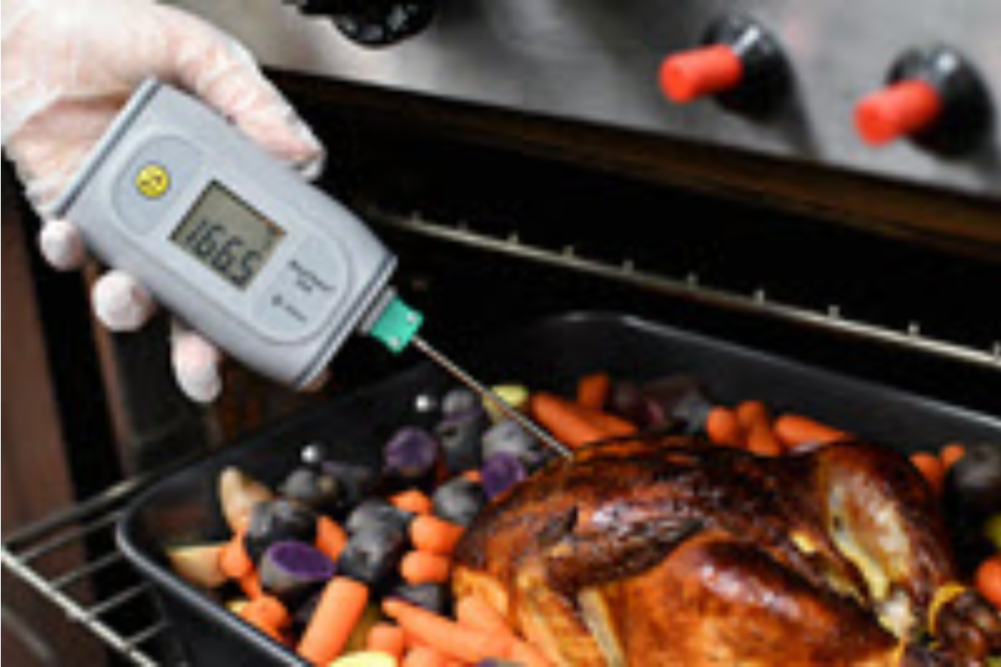Most retail food service locations are no longer just in the business of selling traditional dry groceries, canned goods, non-food products, and perishables—they are taking things a step further by tailoring their products to meet consumer demand and growing competition. Prepared foods for take-out and ready-to-eat foods that are cooked in-store have opened up new revenue streams for operators—and also created new competition. Supermarkets and grocery stores now find themselves playing on the same field as restaurants, convenience stores, gourmet specialty stores, and even department stores.
With these new food offerings, stores are now faced with the same legal requirements and procedures for food safety followed by restaurants and other food-serving establishments. As a result, successful operators are adopting smart strategies to maintain food safety and are investing in new technology designed to increase efficiencies and improve practices.
Keep an Eye on the Temperature
One crucial step towards meeting these health and safety standards is to focus on temperature monitoring—both in refrigeration units and in food checks.
In the past, monitoring temperatures has been tedious and sometimes ineffective as staff members manually checked and recorded temperatures in a handwritten long. However, new technologies are breathing new life into the process and helping many operators avoid costly run-ins with health inspectors.
One such system, due to be released soon, is the DayMark Temp Monitoring and Food Check Solution. Offered by DayMark Safety Systems in partnership with JRI – designers and manufacturers of measuring, control, and monitoring solutions—the HACCP-compliant system provides food safety management, temperature monitoring, and compliance through an intuitive and comprehensive web application, either wirelessly or through a hardwired connection.
Key advantages include an automatic alert that is sent via text or email when the system detects critical temperature changes that could affect food safety and quality and the ability for operators to perform automated temperature and food checks from a remote location as frequently as needed. The system eliminates the need for staff to manually check temperatures and is an accurate and reliable way to make sure all foods are stored and cooked correctly.
In the Cloud
Systems that utilize cloud-based technology provide consistent and precise information—a key aspect that becomes especially important when the health inspector comes to the door. The DayMark solution, for example, sends information to the cloud where it is maintained on a dashboard, eliminating worry about mistakes or the possibility of someone falsifying information.

